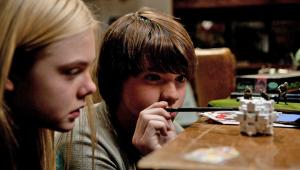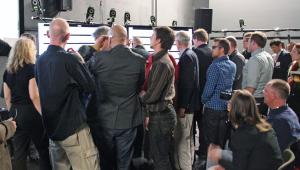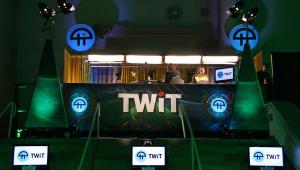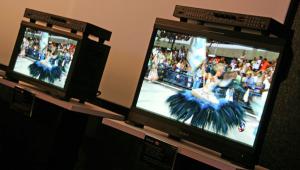Alec in Huluwood

So it should come as no surprise that I didn't see the Super Bowl this year. Yes, I'm sure it was a beautiful high-def picture, and every year there are some kick-ass commercials made especially for the event. But for me, snoring through three hours of football for a total of three minutes of great commercials just ain't worth it.
However, it might have been worth it this year. If I had watched the game, I would have seen the Hulu commercial that much sooner. As it happens, I saw it for the first time just a few night ago in full high-defand it totally blew me away. I've never seen such a scathing parody of the medium that carries the message to consume media.
For those few who might not have seen it, google "Hulu Super Bowl" and get ready to laugh your ass off. Alec Baldwin reveals himself to be part of an alien plot that uses television to turn human brains to mush so they can be scooped out with a melon baller and "gobbled right on up." But TV only goes so far, softening the brain to the consistency of a ripe banana.
To finish the jobthink cottage cheesethe aliens have introduced Hulu, an online service that beams more of the cerebral-gelatinizing shows you want directly to your portable computing device any time, anywhere, for free. And there's nothing you can do to stop itI mean, what are you going to do, turn off your TV and your computer?
The commercial works on many levels, almost like an Escher drawing. First, there's the self-referential element, creating what quantum physicists call a tangled hierarchy. Medium and message are intertwined, creating a cognitive feedback loop and bringing new meaning to Marshall McLuhan's assertion that the medium is the message.
Then there are the truths within the message. I don't believe that TV physically rots the brainthough I've seen claims to the contrarybut I'm not so sure about other, more subtle forms of damage. TV certainly has a hypnotic effect, and there are studies that indicate it puts the brain in a more passive, receptive state that's perfect for conveying emotional appeals to consume and fear whatever the producers want you to consume and fear.
This is especially effective with children, whose unfinished brains are particularly susceptible to such manipulation. Not only do they incessantly bug their parents for whatever strikes their fancy from commercials, but their behavior can actually be affected by the programsfor example, kids hurting themselves and each other by imitating TV wrestlers and superheros.
I'm also dismayed at the increasing banality of many TV programs. In particular, so-called "reality TV" and shows such as Jackass that highlight stupid human behavior do nothing more than give viewers a false sense of superiority over the people they see on the screen.
Of course, I watch TV, and I enjoy it. But I'm very selective about what I watch, and I also do many other things. As Marie Winn writes in her book The Plug-In Drug, "The primary danger of the television screen lies not so much in the behavior it producesalthough there is danger thereas in the behavior it prevents: the talks, the games, the family festivities and arguments..."
I'm not saying don't watch TV or even Huluheck, I look forward to checking it out for myself. Just be aware of how it's affecting you. A simple shift of consciousness can help prevent your brain from getting to the stage that the aliens are waiting formmm, mushy mush!
If you have an audio/video question for me, please send it to scott.wilkinson@sorc.com.




























































